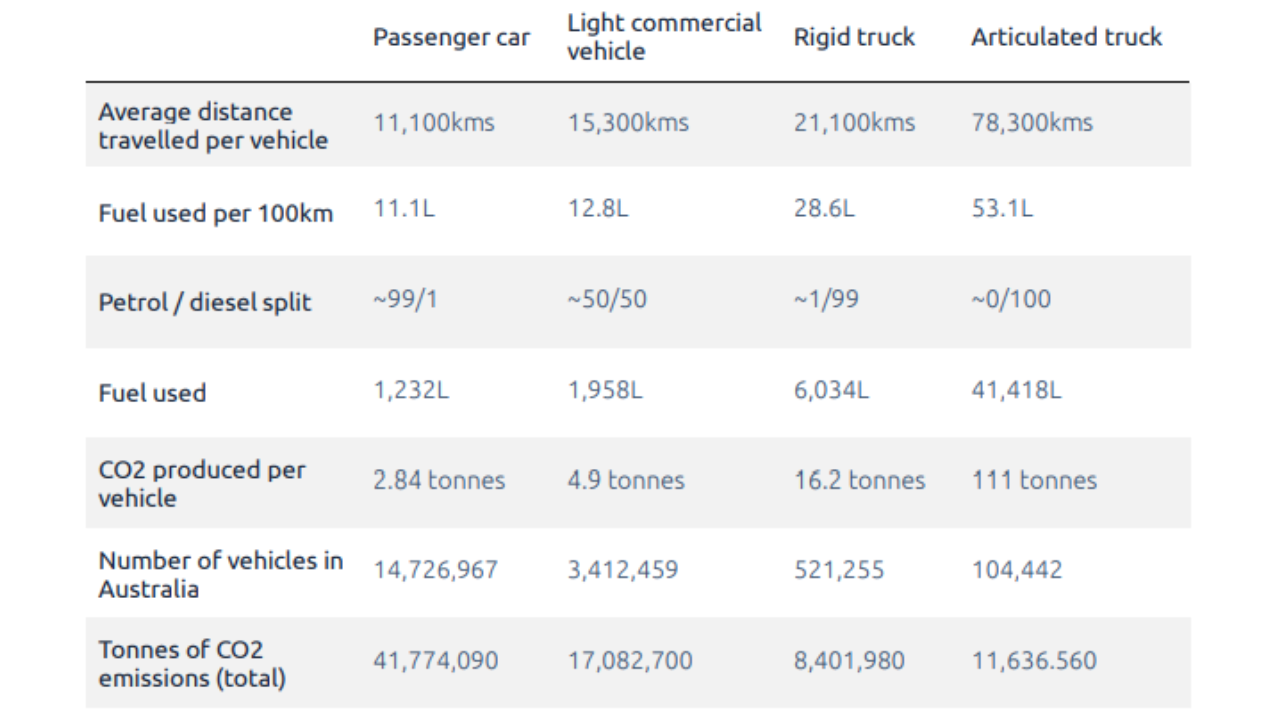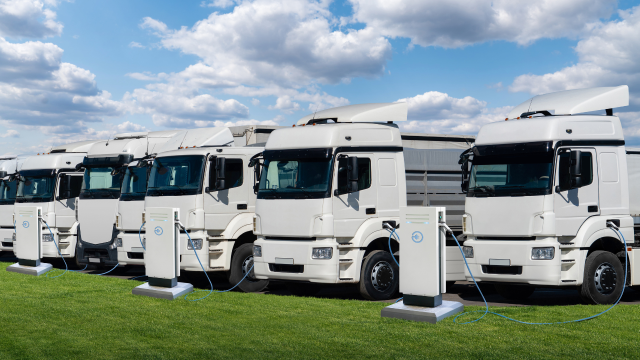Adiona Tech, a startup that works with companies on their delivery and logistics plans, has prepared a report on electrifying fleets of trucks across Australia, arguing that the vehicle class can’t be left behind in the energy transition.
Adiona Tech claims in the report that electrifying 10 vehicles used for last-mile delivery, that is the movement of goods from the last warehouse to its final destination (say, for example, from the Australia Post depot to your front door), is as beneficial as 56 households purchasing electric vehicles. Representing just one per cent of vehicles on the road, articulated trucks account for 15 per cent of transport emissions in Australia.
“We cannot transform the national fleet of 15 million passenger and five million commercial vehicles overnight, so we first need to focus on the decisions that make the biggest difference, for the lowest effort and financial investment,” Adiona Tech CEO and co-founder Richard Savoie said.
“Electrifying fleets is by far the most efficient way to reduce vehicle emissions. Every battery we put in a truck or van counts for five to 50 households buying an EV, and businesses often have hundreds of vehicles. Australia must prioritise the electrification of vehicles that are on the road most, travel the longest distances, and are the least fuel efficient.”
We have seen some momentum in electrifying fleet vehicles in Australia over the past year. Ikea currently has 10 electric delivery trucks in Australian operation (with plans to expand that number). Meanwhile, Team Global Express has introduced 60 electric trucks, as assisted by ARENA funding, and Volvo is planning to build electric trucks in Australia from 2027.
This report underscores why these efforts are so important. While individual electric vehicle uptake is important (though still unaffordably priced for many people), the report claims that individual cars account for 2.84 tonnes of CO2 emissions per year. Meanwhile, large trucks produce 111 tonnes of CO2 per year and small trucks produce 16.2 tonnes per year.

The case for prioritising truck electrification gets stronger when you consider the average distance travelled of different vehicle types per year. Articulated trucks travel at an average of 78,000 kilometres per year, while rigid trucks travel 21,100 kilometres per year and light commercial vehicles only travel 15,300 kilometres per year, while passenger vehicles only travel 11,100 kilometres per year.
“Not only do commercial vehicles travel more, they also create more emissions per kilometre travelled. This data underscores the need to electrify fleet and freight vehicles urgently. Ideally, we would start by electrifying the least fuel-efficient vehicles, which spend the most time on the roads,” Savoie added.
Additionally, Adiona Tech argues that the demand for last-mile delivery is expected to soar in the coming years. The report cites figures from the World Economic Forum that anticipate delivery vehicle numbers to increase by 36 per cent until 2030, to compensate for increased online purchases and instant or next-day delivery timeframes. As the report highlights: “Unless these fleets are electrified, this will increase emissions from delivery traffic significantly.” In this section of the report, Adiona Tech supports the uptake of public transport to reduce vehicle numbers in city centres.
It’s also expected that, with every tonne of lithium mined for EV use, 200 batteries can be created. 500 tonnes of CO2 emissions can be saved by dedicating this lithium to passenger vehicles, while 900 tonnes could be saved by dedicating it to trucks.
Adiona obviously wants things to change to support truck electrification, but would also like to see restrictions placed on combustion engine vehicles in major cities like Sydney and Melbourne (similar to restrictions in London). If this were to happen, Adiona would like to see companies compensated for their combustion engine delivery trucks to assist with the switch to electric versions.
“Federal and state leaders must prioritise urban spaces and last-mile delivery, combining financial incentives with emission caps,” the report adds.
“An emissions limit on new commercial cars sold that would decline to 0 by 2035 would effectively give businesses 12 years to phase out all petrol vehicles.”
At the state level, only NSW and Victoria have committed funding towards delivery fleet electrification, with NSW putting forward $105 million and Victoria allocating $5 million.
Obviously, any step in the direction of electrification is good, but it’s important that we factor in decisions like this in prioritising areas where we’re likely to see the most benefit.
